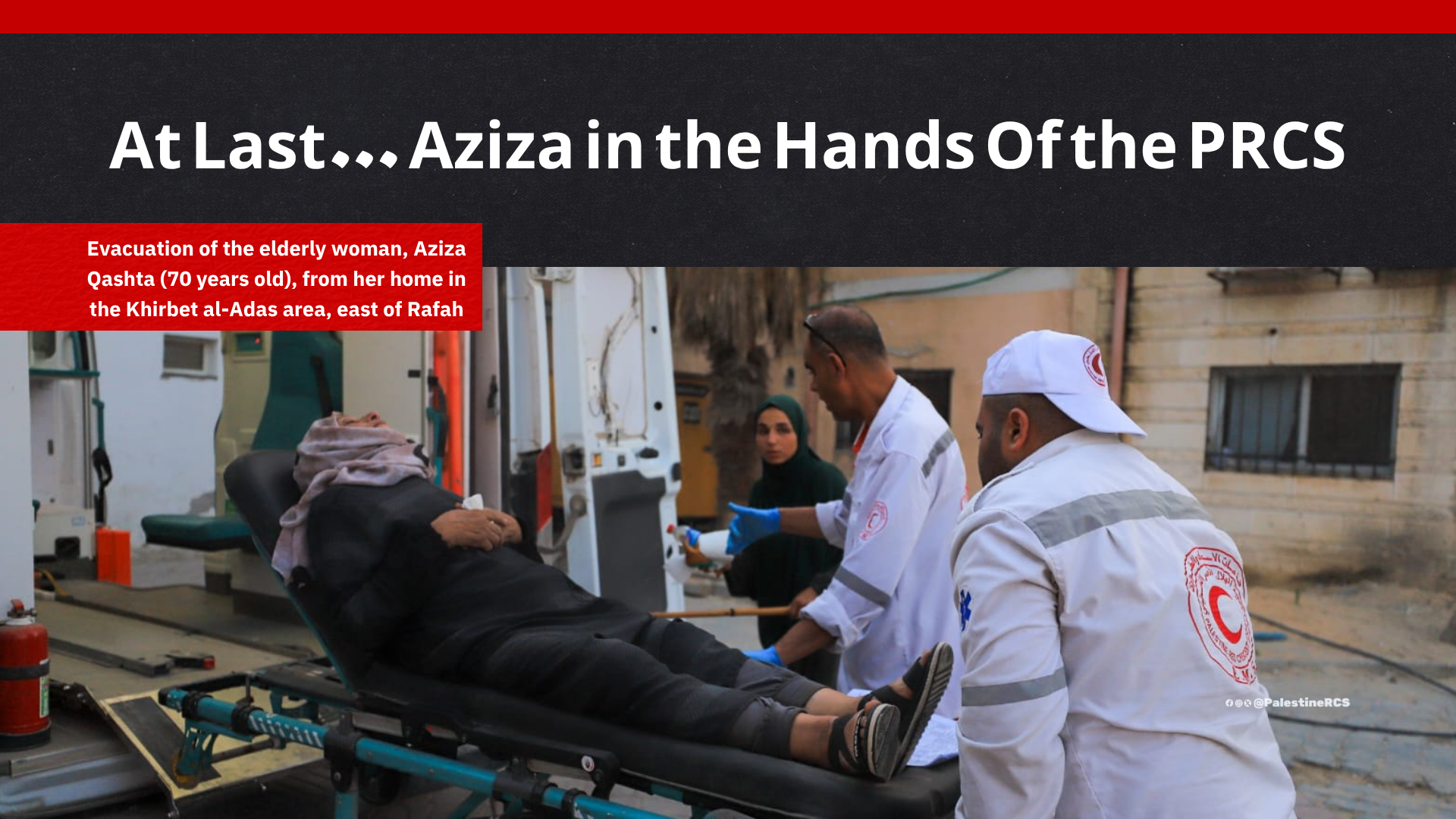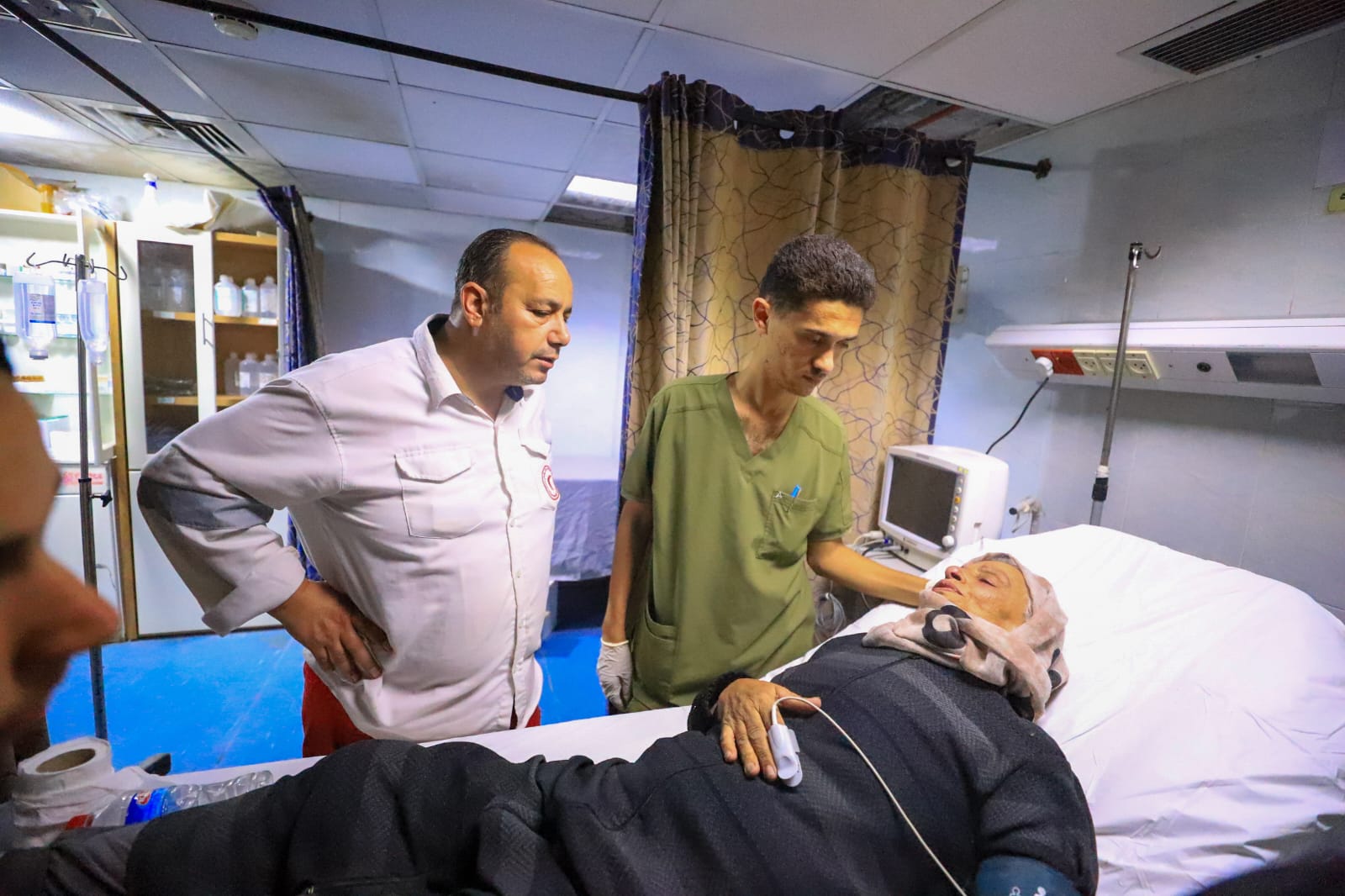At Last… Aziza in the Hands of the PRCS

The Palestine Red Crescent Society (PRCS) teams were unable to evacuate the elderly Aziza Suleiman Qishtah (70 years old) from her home in the Khirbet Al-Adas area in northern Rafah due to the suffocating blockade imposed on the region. Despite numerous and repeated attempts to gain access through the International Committee of the Red Cross (ICRC), all efforts failed as the occupation refused and denied permission for safe access.
Aziza had lived for years in a modest home with her blind and ill husband, who was in urgent need of evacuation and immediate medical care. As the Israeli aggression intensified and the infrastructure collapsed, she was left without water or food, waiting in vain for coordination efforts that never succeeded. During this time, her husband’s health deteriorated, and he died in her arms. She was unable to bid him a proper farewell or call for help, and she was forced to bury him alone, only to then face harsh humanitarian conditions.
Teams continued trying to reach her from several directions, but the occupation had closed off roads and blocked all access. When Aziza had exhausted all her strength, she made a desperate decision. Carrying a white flag, she walked toward a military outpost, hoping to reach a point where PRCS teams could meet her. After being searched and having her documents returned, she was instructed to walk a long distance. Weary and alone, she kept going until she reached a point where the PRCS was able to reach and assist her.
The PRCS teams were waiting for her and immediately transferred her to Al-Amal hospital in Khan Younis, which is operated by the PRCS. She arrived in a state of severe exhaustion and dehydration, and was promptly provided with the urgent medical care she needed.
Aziza’s experience is not an isolated case, but one of hundreds of stories that repeat daily in besieged areas where ambulance teams are systematically prevented from reaching those in need. Between waiting and danger, civilians die in silence.
Yet despite it all, the PRCS continues to carry out its humanitarian duty, defying obstacles and restrictions in a relentless effort to save those who remain alive. Its presence has become more than a medical response; it is a final lifeline in a time of slow death.


